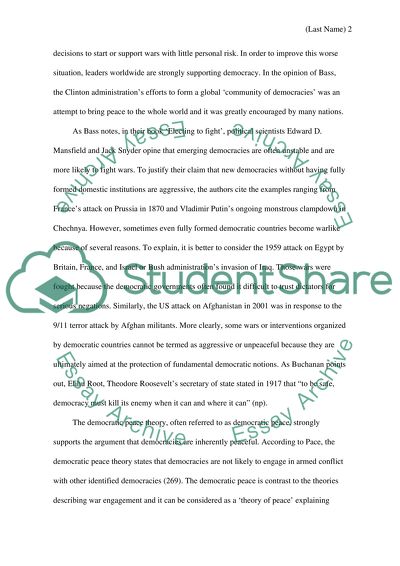Cite this document
(“Are Democracies Inherently Peaceful Essay Example | Topics and Well Written Essays - 1750 words”, n.d.)
Retrieved de https://studentshare.org/history/1485264-ww1-ww2-period
Retrieved de https://studentshare.org/history/1485264-ww1-ww2-period
(Are Democracies Inherently Peaceful Essay Example | Topics and Well Written Essays - 1750 Words)
https://studentshare.org/history/1485264-ww1-ww2-period.
https://studentshare.org/history/1485264-ww1-ww2-period.
“Are Democracies Inherently Peaceful Essay Example | Topics and Well Written Essays - 1750 Words”, n.d. https://studentshare.org/history/1485264-ww1-ww2-period.


